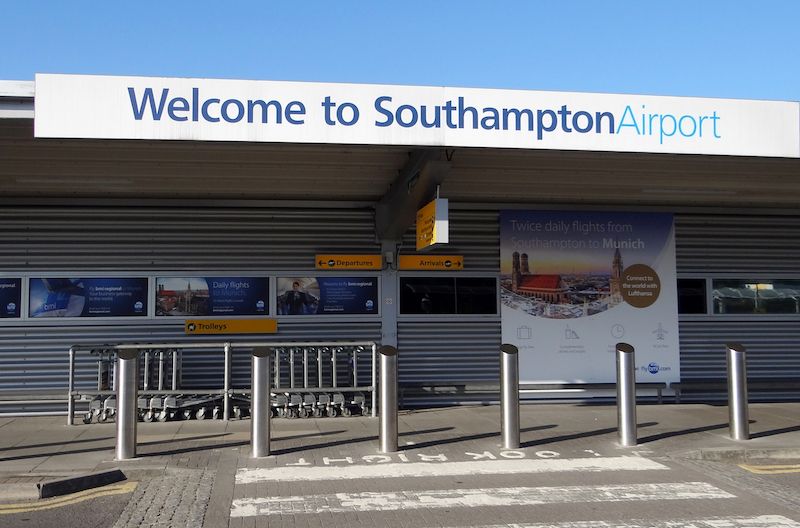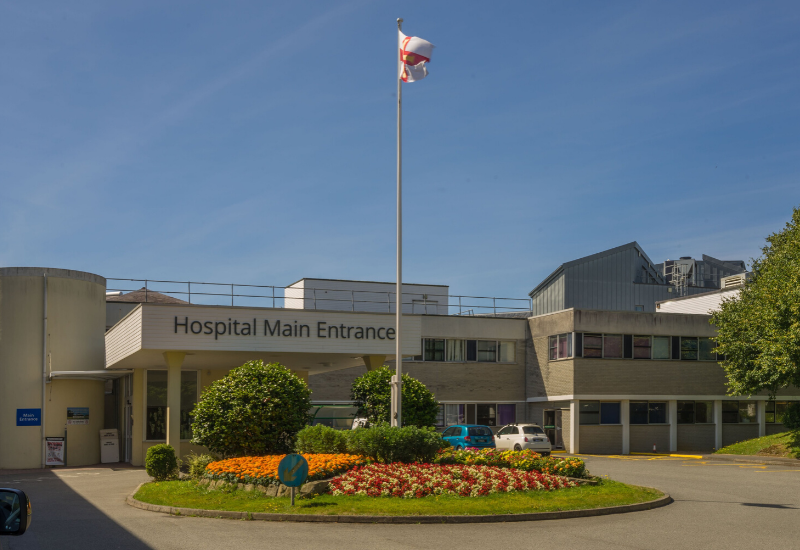


More than 1,000 islanders are backing a mother with incurable breast cancer in her bid to bring radiotherapy to Jersey – and the idea could soon be debated in the States Assembly.
Rose Shepherd (50) published a petition so that local patients would not have to go through the “physical and emotional distress” of travelling to the UK for treatment.
“We have needed a radiotherapy unit in Jersey for a long time,” she said.
She said her petition had received an “amazing amount of support”, resulting in more than 1,000 signatures in little more than 48 hours, and a pledge from Deputy Montfort Tadier to bring a proposition to the States Chamber for debate.

Pictured: Deputy Montfort Tadier will be bringing a proposition to the Assembly.
"Over the past few months, I have been in contact with a variety of oncology patients and their families, as well as health care professionals in the island," the St. Brelade representative said. "It is clear that, whilst patients are grateful for the treatment they have received in the UK, the experience of those travelling whilst very ill, is very traumatic. They are away from their homes and families, sometimes for weeks at a time when they are often very weak and feel very vulnerable.
"I believe there is the opportunity for much of this treatment to be provided on-island and I have also been speaking to the Health Minister and other like-minded colleagues, who also share my vision for on-island treatment. It is something that will be a real lifeline for islanders now and in the future, and it is something that could serve the whole of the channel islands, not just Jersey.
"I pay tribute to people like Rose Shepherd who whilst undergoing treatment herself, both now and in the past, is using her experience to make sure others have a much better experience in future."

Pictured: Patients needing radiotherapy have to fly to Southampton for treatment.
Rose was first diagnosed with breast cancer nearly 20 years ago at the age of 30 and described her experience of going away to Southampton for treatment as “lonely” and “difficult”.
“My boys were only seven and eight and I was over there for six weeks,” she said. “I was coming home every every weekend because it was important that I spent as much time with my children as possible.
“It was so difficult for me. Radiotherapy is a cumulative treatment, the more you have the treatment, the more it affects you. My sons were not getting the best of me because I was so tired.
“Because it’s six weeks, it’s not always possible to have a loved one with you,” she added. “It’s tough enough with a cancer diagnosis, let alone having to go away on your own.”
After Rose was diagnosed with secondary breast cancer in December 2017, following 16 years in remission, she once again had to receive treatment in the UK.
“Two years ago, I had to go back for my spine,” she said. “I had a severe reaction, and I was rushed to hospital. I am a grown woman, but I was still terrified. I had nobody with me, I was alone. I phoned a friend to come with me because I was so terrified.”

Pictured: Rose said the new hospital is the perfect opportunity to provide a local radiotherapy unit.
Rose explained that during her first treatment, all the patients from Jersey were put up in the top floor of a nursing home, where they had access to a communal TV room and a small restaurant where their meals were served.
“We were all together and we could support each other,” she said. “Now you are put up in apartments on your own. Sometimes you don’t feel well enough to cook for yourself.
“When you have treatment, you are probably only in the hospital for an hour a day, the rest of the day you are on your own, it can be really tough.
“If you were to suddenly feel ill, you need to contact someone at the hospital so they can send someone to collect you. A lot of people cannot afford their husband or wife to go away for six weeks. It’s such an isolating time for a lot of people.”
She also explained that treatment in Southampton involves a daily commute to the hospital, which is longer than the 10 minutes or so it would take in Jersey.
Rose believes that with the new hospital soon to be built, there is the “perfect opportunity” to incorporate a radiotherapy unit, which she says is “so needed”.
She said the unit could be opened up to the other Channel Islands, allowing residents who are well enough to travel daily if they wish to.
“One in two of us is going to get cancer,” she said. “We are sending people to the UK every day which is costing us a fortune.
“Let’s put something on the island. There are some people, mainly elderly people, who won’t put themselves through the treatment because of the travel. I have been sent a lot of messages from people who have been to Southampton or will be going there who said how tough it is emotionally to go on your own.”
There is currently no mention of radiotherapy in Jersey in the Jersey Care Model, though there have been calls for it for many years.
In June, Health Minister Deputy Richard Renouf said in the States Assembly that this was because it was not economically viable, though he said the Government was "investigating what is possible to do on-island and we have a working group exploring the feasibility of a clinical and economic case for on-island provision."
However, he noted that "complexity arises because the overall volume of patients needing radiotherapy, which is about two to four per week at present, does not support the viability of a provision on-island, both from a clinical or a healthcare economics perspective."
Deputy Renouf continued: "The relationship between volumes and outcomes for complex health conditions is well documented. For many conditions, the professional bodies are making minimum numbers the requirement for service or staff to be accredited or for services to be commissioned. A community of 108,000 in the UK is unlikely to have its own radiotherapy service."
The following month, Clinical Director of the new hospital project, Professor Ashok Handa, said that radiotherapy could be provided if Guernsey decides to come on board.
"I understand that the business case for on-island radiotherapy doesn’t stack up for a population of 110,000. It does stack up for a population of 180,000 and, of course, if there was a Channel Islands' provision, that would make both economic sense and it might start making good clinical sense," he said.

Pictured: The Princess Elizabeth Hospital in Guernsey, whose cooperation could be key in providing an on-island radiotherapy service.
“I understand that discussions along those lines are under way, and I also meet up with our counterparts in Guernsey, who are building two hospital extensions in three phases, and this is one topic where we are attempting quite hard to get them to engage with us in a joint venture, so that we could make the clinical and economic case for radiotherapy on island.
“I’m engaged in that because I would like that to be a provision from 2026 onwards.
"I know Heath Director General Caroline Landon would like to see an extension of cancer services on island, including radiotherapy, and she is exploring that at her level with Guernsey to try and make that happen.”
Comments
Comments on this story express the views of the commentator only, not Bailiwick Publishing. We are unable to guarantee the accuracy of any of those comments.